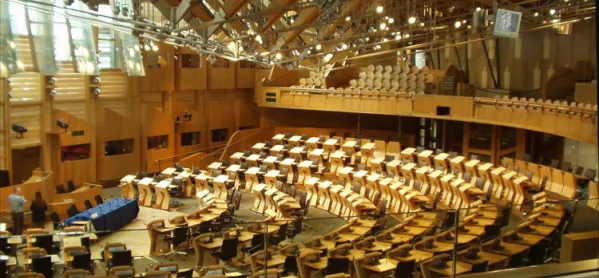The Scottish Parliament has voted to scrap controversial assessments for P1s.
It appears likely, however, that the Scottish government will nevertheless continue with the assessments for the country’s youngest pupils.
After an often ill-tempered debate, MSPs voted 63-61 in favour of abolishing the assessments.
Education secretary John Swinney accused the Scottish Conservatives of opportunism, having led the calls to scrap P1 Scottish National Standardised Assessments, despite previously having backed them. Tory education spokeswoman Liz Smith said she had revised her view, having examined the evidence, including teachers’ concerns.
Lib Dem education spokesman Tavish Scott accused the government of being “extraordinarily aggressive” in defending the SNSAs. Greens education spokesman Ross Greer said the government’s approach was the opposite of that in Finland - a country whose education system is often held up as an example for Scotland to follow - where an emphasis is put on gaining parents’ trust, not undermining it.
The former convener of the Scottish Parliament’s education and skills committee, James Dornan, waved away suggestions that the SNSAs were particularly upsetting for P1 pupils, saying: “Children have always cried in school.”
Mr Swinney had just addressed the Scottish Learning Festival in Glasgow this morning when, in a question and answer session at the event, a primary teacher from the Scottish Borders said that P1 SNSAs were “a huge waste of time and money” and “not fit for purpose”, and that she expected her view to be widely shared in the primary sector.
P1 national tests ‘not fit for purpose’
She said: “It’s not that I have an objection in principle to the idea of standard assessment - but what I’ve seen in practice is that they don’t work, they’re not suitable, and my colleagues around me, I’m sure, feel exactly the same.”
However, a headteacher from a small Lanarkshire school took issue with that point, saying the P1 SNSAs had been enjoyed by pupils and that the information gained had helped teachers to smooth their path into P2.
She said that the school “didn’t find any level of stress at all” in its P1s, and that they “quite enjoyed taking part”. She added that the feedback from the SNSAs was “extremely helpful” and changed how the school supported a small group of boys that had been struggling.
Also at the Scottish Learning Festival, one of the Scottish government’s International Council of Education Advisers said the expert group had told the government that it should not introduce SNSAs in P1.
Allison Skerrett, an associate professor in language and literacy at the University of Texas at Austin, said they had questioned whether pupils of that age would be ready to show mastery in different levels of literacy and numeracy and about the potential narrative that could emerge, with the early labelling of teachers, schools and children as high- or low-performing.
But now the tests were in place - whilst “one or two” colleagues remained opposed - she felt that because of the way the tests were being implemented, the world could learn from the Scottish example.
Professor Skerrett said of today’s vote that it was too early to decide if the SNSAs were not working.




